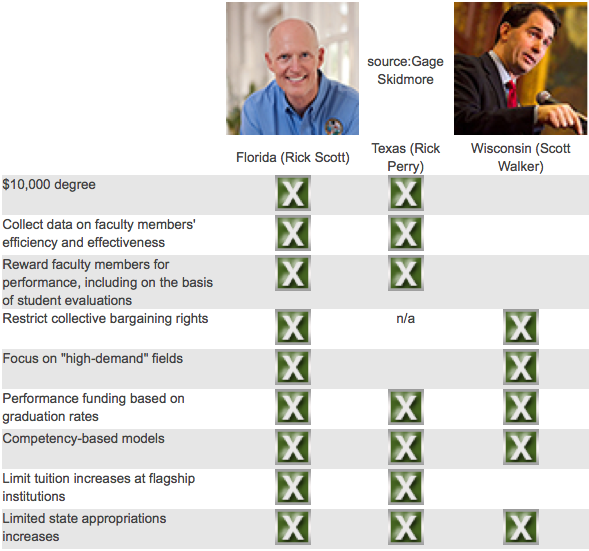When Florida Governor Rick Scott announced earlier this week the creation of two four-year, $10,000 bachelor’s degree programs in Florida, he could have easily been mistaken for another Republican governor named Rick.
Less than two years ago Texas Governor Rick Perry called on his state’s colleges and universities to create bachelor’s-degree programs that cost families no more than $10,000. The call set off a firestorm of debate about whether it was possible to control or lower the cost of offering a degree through the use of technology and competency-based assessment, or whether it was possible to find alternative subsidies that would drop the price for students and their families.
Perry and Scott appear to agree on much more than an ideal price tag. The two — along with another Scott, Wisconsin Governor Scott Walker, who unveiled his own higher education agenda earlier this month — appear to be at the forefront of what could be an emerging Republican approach to higher education policy, built largely around cost-cutting, which seems to appeal to some voters, if not to the academy itself.
The three governors have much in common when it comes to their approach to higher education, such as mandating low-cost options like the $10,000 degree; holding down tuition prices, particularly at flagship institutions; tying funding to degree completion, particularly in fields deemed to be in “high demand”; paying faculty on the basis of performance, including how they fare on student evaluations; and likely asking the institutions to do it all with less state money.
Read more on Inside Higher Ed’s website.

